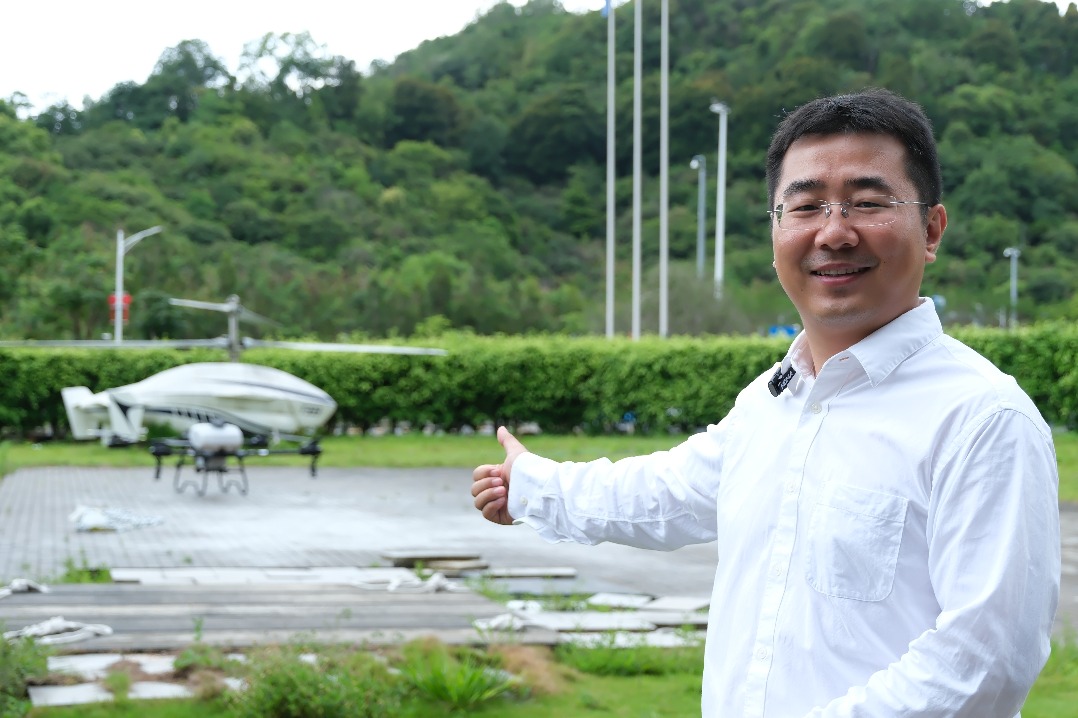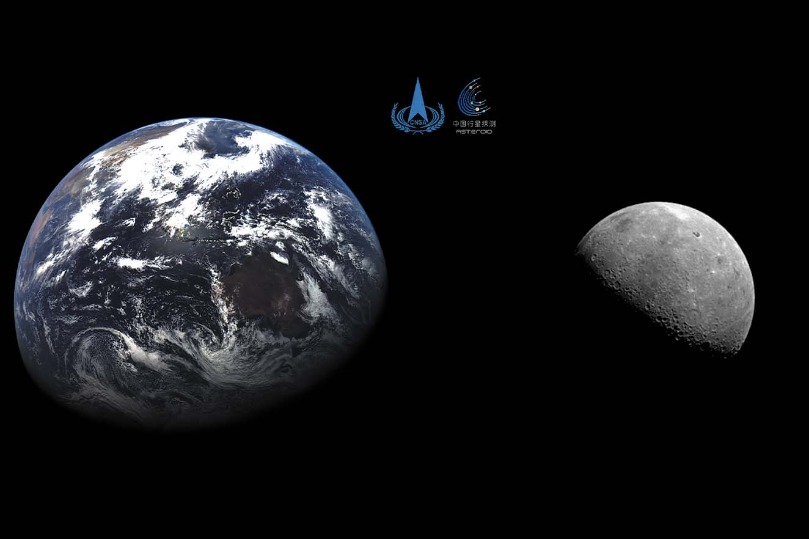Reviving the historic legacy


On the 70th anniversary of the Bandung Conference, it is worth recalling the spirit that can help foster trust and deepen ties between China and ASEAN, and the Global South, through the BRI
The Bandung Conference, also referred to as the Asian-African Conference, was the first international gathering organized by newly independent Asian and African nations. It brought together 29 participating countries determined to assert their influence in global affairs. The conference aimed to shape relations among these emerging states by promoting solidarity, cooperation and peaceful coexistence. Additionally, it sought to foster South-South economic and cultural cooperation and create a unified stance against colonialism, imperialism and racial discrimination.
The most remarkable and long-lasting impact of the Bandung Conference was the endorsement of the Five Principles of Peaceful Coexistence, which was originally formulated by China and India in 1954. These principles — mutual respect for sovereignty and territorial integrity, mutual non-aggression, non-interference in each other's internal affairs, equality and mutual benefit, and peaceful coexistence — played an important role in guiding post-war international relations and laid the foundation for the Non-Aligned Movement in 1961, which sought to maintain autonomy from Cold War's rival blocs.
While evaluating the contemporary relevance of the Bandung Conference, it is necessary to compare its foundational principles with the norms of the Westphalian Order. The Westphalian Order originated from the Peace of Westphalia in 1648, which marked the end of the Thirty Years' War (1618-48) in Europe. Driven by the desire of European powers to restore stability following extended religious and territorial conflicts, the treaty established the foundations of the modern nation-state system, highlighting state sovereignty and the norm of non-interference in domestic affairs.
While Westphalia is often hailed as the foundational moment for the modern international system of sovereign states, its concept of sovereignty was far from universal. The treaties codified the principles of non-intervention and state sovereignty, but only within the context of European Christian states. Non-European societies across Africa, Asia and the Americas were systematically denied equal recognition within the international order. This exclusion served to justify colonial expansion, as European powers invoked narratives such as the "white man's burden" or divine missions to "civilize" the world. In effect, the Westphalian framework ignored the structural inequalities that limited the ability of postcolonial states to fully exercise their sovereignty, particularly within global economic and political systems.
In contrast, the Bandung Conference aimed to dismantle the international hierarchies that persisted despite the formal end of colonial rule. Whereas the Westphalian system tacitly accommodated colonialism, Bandung openly condemned it, reframing sovereignty as inseparable from racial equality and the right to self-determination. This contrast highlights Bandung's dual character: it both extended Westphalian state-centric norms and simultaneously rejected their selective, hierarchical application. For the Global South, sovereignty was not merely a matter of territorial control — it was inherently tied to the right to develop free from economic exploitation, a dimension absent from the original Westphalian model.
The Bandung principles embedded economic justice and solidarity into a vision of global order that reflected the aspirations of the Global South. Its call for South-South cooperation recognized that political sovereignty without economic autonomy was hollow. Initiatives such as collective resistance against exploitative trade terms reflected a rejection of the Westphalian order's indifference to economic imperialism. Similarly, the Bandung principles' emphasis on peaceful coexistence addressed the Cold War's ideological polarization, advocating neutrality in a world pressured to align with either the US or Soviet blocs. It offered instead a pluralistic vision of a world where political systems from A to Z could coexist without coercion. Its goal was not merely political liberation but the structural inclusion of Global South states, such as Southeast Asian countries, in global governance mechanisms.
In the post-Cold War era, the United States-led liberal international order has notably challenged, and even abandoned, traditional Westphalian principles of state sovereignty and non-interference. This shift is reflected in some new concepts such as "Responsible Sovereignty" and "Responsibility to Protect" (e.g., Kosovo, Libya). The most notable example is the 2003 Iraq War, widely condemned as an illegal violation of sovereignty due to the lack of United Nations Security Council approval. The erosion of Westphalian norms has contributed to the crises in Ukraine and the Middle East, disrupting traditional geopolitical balances, intensifying inter-state tensions, and provoking divisions and conflicts by challenging state sovereignty and disregarding legitimate security concerns.
In contrast, the Bandung Conference played a pivotal role in laying the groundwork for the establishment of the Association of Southeast Asian Nations in 1967.The Five Principles of Peaceful Coexistence, emphasized at Bandung, became integral to the Treaty of Amity and Cooperation in Southeast Asia in 1976. ASEAN's early foreign policy was shaped by the Bandung Spirit, enabling Southeast Asian nations to navigate Cold War tensions without being directly entangled in superpower rivalries. In line with Bandung's ideals, ASEAN aimed to foster solidarity among post-colonial nations, ensuring Southeast Asia remained free from external domination while promoting regional cooperation. Bandung's emphasis on South-South cooperation also influenced ASEAN's economic initiatives, such as the ASEAN Free Trade Area and the ASEAN Economic Community. Furthermore, Bandung's call for stronger diplomatic engagement among developing nations helped shape ASEAN's consensus-driven approach to negotiations and dispute resolution.
Armed with the Bandung principles, ASEAN has sustained economic growth for decades, emerging as one of the world's most dynamic economic regions despite deep internal diversity in political systems, development stages, and cultural identities. ASEAN is home to a rich mixture of civilizations and religions, including Islam, Christianity, Hinduism, Buddhism and indigenous belief systems, reflecting centuries of cultural exchange, migration and historical interactions across the region. This pluralism has shaped ASEAN's approach to regionalism, fostering a model of coexistence that values harmony, mutual respect and non-interference over rigid uniformity.
China has deeply honored the legacy of the Bandung Conference, viewing it as a valuable historical lesson in fostering solidarity among developing nations. It draws on the Bandung principles to support its vision of building a community with a shared future with neighboring countries and promoting a new type of international relations grounded in mutual respect and win-win cooperation. Thus, the Bandung legacy provides a historical and political foundation that can help foster trust and deepen ties between China and ASEAN, and the Global South, under the evolving architecture of the Belt and Road Initiative.
Li Xing is a Yunshan leading scholar and director of the European Research Center at Guangdong University of Foreign Studies and an adjunct professor of international relations at Aalborg University, Denmark. John Pang is a senior fellow at the Belt and Road Initiative Caucus for Asia-Pacific in Malaysia. The author contributed this article to China Watch, a think tank powered by China Daily. The views do not necessarily reflect those of China Daily.
Contact the editor at editor@chinawatch.cn.


































